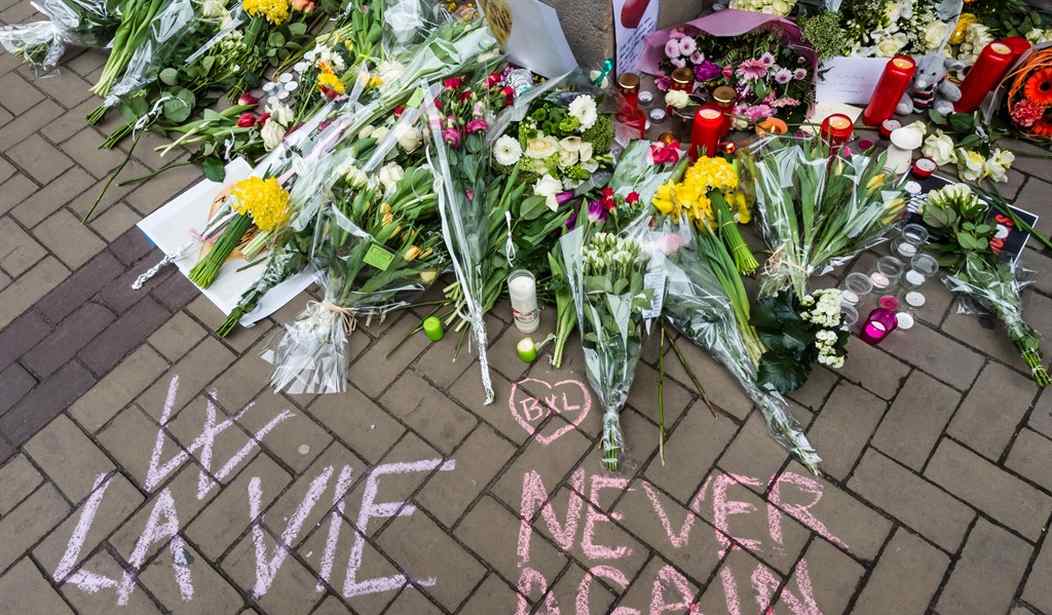A 23-year-old woman in Belgium who survived an ISIS terrorist attack at the Brussels airport in 2016 was granted her request to be “euthanized” after suffering from depression for years.
Shanti De Corte was walking through the airport on a class trip to Italy when ISIS detonated three bombs, killing 32 and injuring 300. Miss De Corte was uninjured but the resulting PTSD radically changed her life. After two suicide attempts, she chose to end her life after two psychiatrists signed off on the procedure.
“That day really cracked her, she never felt safe after that,” her mother Marielle told the Daily Mail. “She didn’t want to go anywhere where other people were, out of fear. She also had frequent panic attacks and she never got rid of it.”
De Corte was in and out of psychiatric hospitals for several years, surviving suicide attempts in 2018 and 2020.
Shanti frequently recalled her experiences following the bombing on social media and spoke of her struggles dealing with her declining mental health.
In one post she wrote: ‘I get a few medications for breakfast. And up to 11 antidepressants a day. I couldn’t live without it.
‘With all the medications I take, I feel like a ghost that can’t feel anything anymore. Maybe there were other solutions than medications.’
“Up to 11 antidepressants a day”? I have never heard of a patient being on 11 antidepressants at a time. In fact, Miss De Corte’s entire experience with mental health professionals in Belgium suggests incompetence and negligence.
And in the end, they just gave up on her.
Euthanasia, defined as the practice of intentionally ending a person’s life to relieve pain and suffering, is legal in Belgium for an individual who is in ‘a medically futile condition of constant and unbearable physical or mental suffering that cannot be alleviated, resulting from a serious and incurable disorder caused by illness or accident’.
Shanti’s formal request to be euthanised was approved earlier this year by two psychiatrists, according to RTBF.
‘The woman was euthanised on May 7, 2022, surrounded by her family,’ the report said.
What happens if a doctor’s incompetence contributes to the “medically futile condition”? There is no way that 11 antidepressants didn’t affect her mental health in ways that could have easily contributed to her depression. And at least one doctor agrees with that.
Antwerp prosecutors began an investigation after receiving complaints from a doctor at the UZC Brugman academic clinical hospital in Brussels. He said the decision to euthanize Shanti “was made prematurely.”
The Federal Commission for the Control and Evaluation of Euthanasia in Belgium didn’t see any problems with the case, but neurologist Paul Deltenre said that there were still different avenues of care and treatment available to Shanti that were not tried.
The death culture has been working for 18 years to bring the debate to this point, In 2004. I wrote about the “Groningen Protocols” in the Netherlands, which allowed doctors to euthanize a baby without the parents’ consent.
In William L. Schirer’s classic “The Rise and Fall of the Third Reich,” the author points out that while Nazis encouraged “Aryan” women to have as many babies as possible (even out of wedlock), non-Aryans such as Jews, gypsies, Slavs, and others were the victims of forced abortions and sterilization. It was but a short jump from those policies to the euthanasia practiced against the deformed, the retarded, and all who, in the opinion of the doctor, would be a burden on the Reich.
The Groningen Protocols eerily echo these policies and call into question the very nature of man’s relationship to government in a free society. When the most important right of all — the right to life — is put in the hands of a committee, it’s time for the Dutch people and indeed the entire euthanasia movement to rethink and reevaluate what they’re trying to accomplish.
How did we go from the idea that terminally ill people should decide for themselves whether to live with their suffering or end it with the assistance of their family doctor to this nightmare scenario of faceless bureaucrats deciding who lives, who dies, and on what basis those decisions are made? Is this the “slippery slope” opponents of assisted suicide have been talking about for years?
Miss De Corte’s condition was far from hopeless. To allow a 23-year-old woman to take the irretrievable step of ending her own life is irresponsible, especially when there are legitimate questions about the quality of care she received.










Join the conversation as a VIP Member